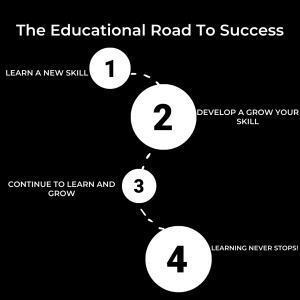How to Negotiate Pay and Benefits: Strategies for Success in Your Career
Negotiating pay and benefits can feel intimidating, but it is a crucial skill that professionals need to master. Understanding the market value of one’s skills and effectively communicating that value can lead to better compensation packages. Many individuals avoid these conversations out of fear, yet with the right approach, they can achieve significant improvements in their overall job satisfaction and financial well-being.
Research shows that employees who successfully negotiate their compensation tend to feel more valued and engaged in their roles. This article will provide practical strategies to ensure individuals are prepared for these important discussions. By focusing on clear communication and demonstrating their worth, they can enhance their negotiating power.
Navigating the complexities of salary discussions involves preparation and confidence. Developing a solid understanding of one’s worth and market trends can empower professionals to advocate for themselves effectively. With the right tools and mindset, turning a daunting task into a rewarding opportunity becomes achievable.
Understanding Your Value
Recognizing one’s worth is essential when negotiating pay and benefits. It involves evaluating qualifications, researching market rates, and assessing skills in relation to job expectations.
Evaluating Your Qualifications and Experience
To establish value, individuals must start by listing their qualifications and experience. This includes education, certifications, and any specialized training relevant to the position.
Key factors to consider:
- Educational Background: Degrees or certifications can significantly impact salary expectations.
- Work Experience: The number of years in the industry, as well as specific roles held, adds to an individual’s marketability.
- Accomplishments: Documenting successful projects or initiatives demonstrates capability and enhances overall value.
By collecting this information, individuals can present a robust case during salary discussions.
Researching Market Rates and Salary Data
Understanding market rates is crucial. Resources like Glassdoor and PaycheckCity.com provide insights into what similar roles command in the industry.
Steps for effective research:
- Consult Salary Surveys: They offer aggregated data based on industry and location.
- Identify Job Titles: Ensure the job title matches to get accurate comparisons.
- Consider Geographic Location: Salaries can vary significantly based on region.
Staying informed about these trends allows individuals to enter negotiations backed by solid data.
Assessing Your Skills Against the Job Description
A thorough review of the job description is necessary to highlight applicable skills. Comparing personal qualifications against the required skills can reveal areas of strength.
Important aspects to evaluate:
- Specific Skills: Identify keywords in the job description and match them with personal abilities.
- Desired Experience: Determine if the years of experience align with what the employer seeks.
- Soft Skills: Communication, teamwork, and problem-solving abilities often factor into hiring decisions.
By aligning personal skills with employer needs, individuals strengthen their negotiation position effectively.
Preparing for Negotiation
Effective preparation is key to a successful negotiation. This involves researching market standards, articulating value, and recognizing the employer’s position.
Determining Your Target Salary and Compensation Package
Before entering negotiations, it is crucial for the individual to establish a clear target salary and compensation package. Researching industry standards and considering the geographic area can provide a solid benchmark.
Utilizing resources such as Glassdoor or Payscale can help identify an appropriate salary range. Additionally, individuals should factor in inflation and the cost of living in their area when determining their needs.
A clear understanding of the full compensation package includes not only salary but also benefits like healthcare, retirement plans, and bonuses. This comprehensive view enhances negotiation leverage.
Crafting Your Pitch: Highlighting Past Achievements
Articulating past achievements effectively strengthens one’s position in negotiation. It is vital to compile concrete examples of contributions to previous employers. These can include successful projects, revenue generated, or process improvements.
Creating a concise narrative that emphasizes these accomplishments can significantly impact the negotiation process. Having quantifiable metrics, like percentages or figures, adds credibility to the claims.
Tailor the pitch to align with the employer’s values and priorities. This demonstrates not only capability but an understanding of how personal contributions can benefit the company moving forward.
Understanding Employer’s Constraints
Recognizing the employer’s constraints is equally important for negotiation preparation. Factors such as budget limitations, existing compensation structures, and market conditions may influence the negotiation process.
Engaging with the employer’s financial health and workforce trends can provide insight into their position. This understanding allows for a more strategic approach to discussions.
It is beneficial to anticipate potential objections or concerns from the employer’s side. Preparing responses that acknowledge these constraints while reinforcing your value can lead to a more constructive dialogue.
The Art of Negotiation
Negotiation is a critical skill that involves several stages, including making a solid initial proposal, effectively responding to offers, and discussing broader benefits. Each of these steps requires preparation and strategy to achieve the desired outcome.
Making Your Initial Proposal
When initiating salary discussions, preparation is vital. Research industry standards for salary expectations and base your figure on data from platforms like Glassdoor or Payscale. Establish a clear starting salary that reflects the value of the role and personal qualifications.
It helps to articulate the rationale behind the proposed salary. This may include specific skills, unique experiences, and how they contribute to the company’s goals. Presenting a range can also be effective, allowing flexibility in discussions.
For example:
- Proposed Salary Range: $70,000 – $80,000
- Justification: “With five years of experience in project management and proven success in delivering on-time projects, I believe this range reflects my skill set.”
Responding to Offers and Counteroffers
After receiving an initial offer, evaluating the total compensation package is essential—not just the base salary. If the offer doesn’t meet expectations or falls short of the researched benchmarks, it’s appropriate to make a counteroffer.
A clear, polite response can maintain positive relations while asserting one’s needs. Highlight what is acceptable and where negotiation is possible. Use data to support any counteroffer, addressing salary, bonuses, or other financial incentives.
Example counteroffer approach:
- Acknowledge the Offer: “Thank you for the offer. I’m excited about the opportunity.”
- Present Counteroffer: “Considering my experience, I would like to discuss a salary of $75,000.”
- Be Open to Discussion: “Is there room for negotiation on this figure?”
Discussing Benefits Beyond Base Salary
Compensation isn’t solely about salary. Discussing benefits extends the negotiation and can significantly enhance the overall offer. Key areas to consider include vacation time, parental leave, and stock options.
Benefits can have a lasting impact on job satisfaction and work-life balance. For instance, negotiating for additional PTO or flexible vacation time can be more beneficial than a slight increase in salary. Stock options and bonuses offer future earning potential and should also be part of the discussion.
Each benefit discussed should align with personal priorities and lifestyle. For example:
- Vacations: Request an extra week of leave.
- Parental Leave: Discuss extending paid time off for new parents.
- Stock Options: Express interest in performance-based stock options as part of the package.
Approaching benefits holistically leads to better negotiation outcomes.
Finalizing the Agreement
Securing the job offer involves understanding the details of the compensation package and the terms associated with it. Addressing each component allows for clarity and aligns expectations.
Securing the Job Offer and Understanding the Terms
Upon receiving a job offer, the candidate should carefully review the compensation package. This includes not only the base salary but also bonuses, benefits, and any performance-based incentives.
A competitive wage should be aligned with industry standards. Resources like Salary.com may provide valuable market data to inform these discussions.
Candidates should clarify the terms regarding their salary range, including any provisions for raises or adjustments. Knowing the total compensation can enhance negotiation power.
If the offer includes a salary increase contingent upon successful performance reviews, understanding the criteria for those evaluations is crucial. Clear communication ensures both parties have aligned expectations from the start.
Preparation for Future Salary Reviews
Future salary reviews are essential for maximizing earning potential. Candidates should inquire about the performance review process and how it influences salary adjustments.
A structured review process typically occurs annually, allowing employees to present their achievements. They should prepare examples that highlight their contributions, promoting their case for a raise.
Understanding how promotions can impact compensation is vital. Candidates should ask about potential career paths within the company and how future earnings could increase based on promotions or responsibilities.
Salary transparency within an organization can provide insights into expected increases. Staying informed about market rates helps employees advocate effectively during reviews.


